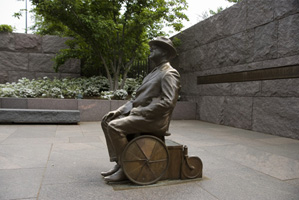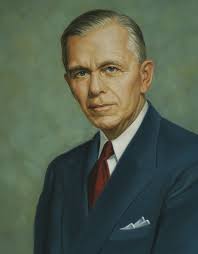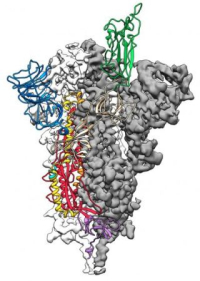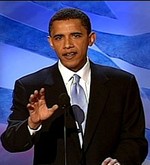
The myth was that the peace of the Civil War, and that of WWI, were punitive. This hurt economies and led to new war.
Determined not to make those mistakes again Roosevelt called his alliance against Hitler the “United Nations.” His wife, the forever-underestimated Eleanor Roosevelt, was a key actor in creating today’s UN. FDR’s top general, George Marshall, became even more important after FDR’s death because of the Marshall Plan.
The Marshall Plan did more than just pour money into Europe’s economies. It created a new economic model. It assumed that, while private goods are important, there should also be growing demand for public goods. These include education, health care, infrastructure, defense, civil law, and the environment.

This is not the economic model in the U.S.
The Nixon Thesis of Conflict changed everything. It changed economics most of all. Gone was the assumption that public goods have equal weight next to private goods. Today, Republicans only believe in private goods. They want education to be private, health care to be private, prisons to be private, roads to be private. They don’t care about the environment. The air, the water, and the land to them are just goods to be bought and sold.
You can see their fear of the Roosevelt model when Republicans talk about Europe. The first thing they say is “socialism.” Sweden, to them, is Cuba. It’s not. Like nearly every other country, including ours, Sweden has a mixed economy. The government has a bigger hand in the economy of Sweden than here because more of the goods there are public. But it’s not that different. If they’re socialist, we’re socialist. Viva socialism.
The question should be the correct balance between public and private goods. In that, Europe today has the balance right and we don’t.

We are paying the price in lives.
During pandemics government takes control of public health. During pandemics you do what the government says in the name of public health. You wear the mask. You separate from other people. You don’t spread the virus.

Public health shouldn’t just be a public good during pandemics. We were already spending twice as much as other countries on health care because we continue to deem it a private good. In this case, it is just costing us money. Under COVID-19 it’s costing many of us our lives.
Another thing we’ve seen during the pandemic is there are logical limits to the demand for private goods. When the pandemic hit, people of means cut back on their spending. They saved more. They put their money into assets. The value of assets, like stocks, rose. The Federal Reserve gave assets another boost, because while new money was meant to stimulate demand, investors had reached their limit on spending (thank you) and plowed it back into investment. The result has been a stock bubble.
In a balanced economy where we see the usefulness of public demand, as opposed to private demand, new investment would not be going into “the economy,” but into public goods. Keeping people fed is seen as a public good in Europe. Maintaining income is a public good in Europe. It was easy for Europeans to follow directions to stay inside because these public goods were being taken care of. Not so here. People with limited means were forced to risk their lives to maintain the lifestyle of those with ample means.

Most Americans now understand the difference between public and private goods, and the need to invest in the former. Investment in private goods is limited by what you might consume. Investment in public goods is theoretically unlimited. This means the potential growth of economies that value public goods is also unlimited, while the growth of economies that only value private ones is limited.
The Obama Thesis of Consensus ultimately looks a lot like the Roosevelt Thesis of Unity. The Roosevelt Thesis was developed from events, a Great Depression and World War. It wasn’t a philosophy so much as a product of necessity.

I was wrong to support him. I should have supported her instead. Hillary Clinton may have been the liberals’ Nixon, but Nixon changed history in ways Obama did not.









